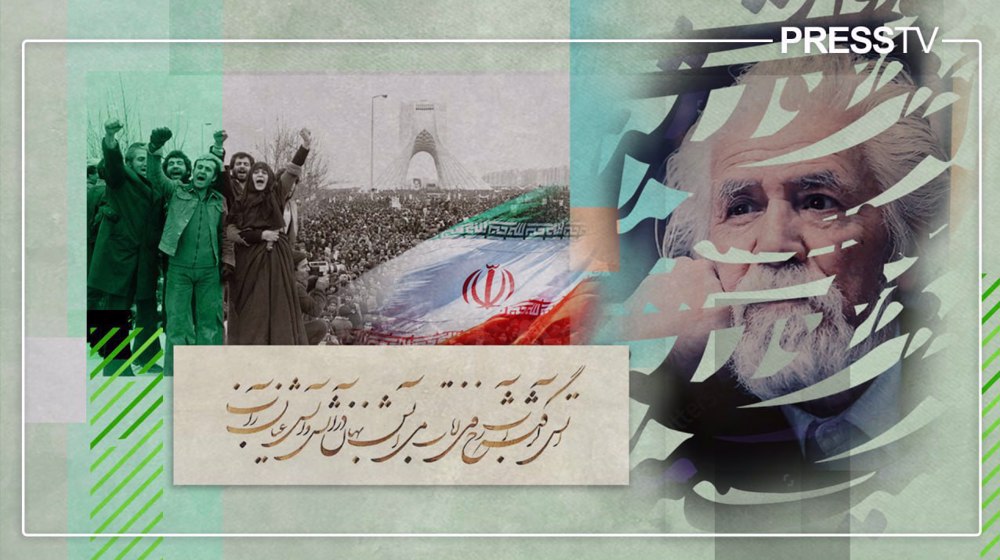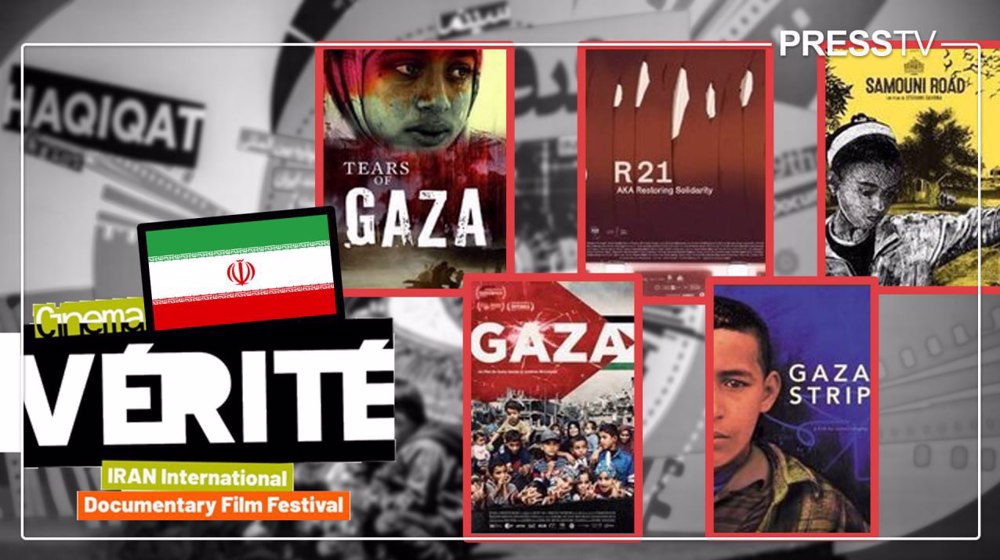Hamid Sabzevari: Iranian poet whose verses became the pulse of Islamic Revolution
By Humaira Ahad
It was a cold February morning in 1979 when the streets of Tehran were overflowing with anticipation for something spectacular.
Millions of people had gathered to catch a glimpse of the architect of the Islamic Revolution, Imam Khomeini, who was returning after 14 long years in exile.
Amid the popular chants, Hamid Sabzevari’s iconic poem “Khomeini, O Imam” reverberated in the air as a chorus of voices welcomed their beloved torchbearer.
Although initially unpublished, the verses had already circulated quietly, disseminated through cassette tapes passed among revolutionary circles during the West-backed Pahlavi regime, at a time when the preparations for a historic uprising under the leadership of Imam Khomeini were rapidly gaining momentum across Iran.
The poem’s devotional lines would soon come to define the emotional tone of the Islamic Revolution that ended the Pahlavi dictatorship and paved the way for the Islamic Republic of Iran.
“Khomeini, O Imam!” became a revolutionary hymn that encapsulated sacrifice, defiance, and faith in the vision of a new Iran. The moment marked a convergence of art and action, and Sabzevari, the “father of revolutionary poetry,” stood at the heart of it.
Early life: A poet born of resistance
Sabzevari was born as Hossein Aqa-Momtaheni in 1926 in the historic city of Sabzevar, in northeastern Iran.
Raised during the time of the West-backed Pahlavi monarchy, his earliest years were marked by hardship, political tension, and the enduring memory of fear.
The events of 1941 — the Anglo-Soviet invasion of Iran and the subsequent socio-economic breakdown — left a lasting imprint on his poetic consciousness.
Sabzevari began writing poetry at the young age of 14, pouring his outrage against the injustices perpetrated by the Pahlavi regime into a notebook titled “Faryad Nameh” or the “Book of Laments.”
This collection reflected the voice of a young man gripped in the struggles of society.
Sabzevari’s early poems bore witness to the despair, inequality, and silent suffering of the Iranian people. Even before the movement that culminated in the Islamic revolution, his poetry carried the rhythm of resistance.
The role of verse in political change
Sabzevari mastered classical Persian forms — sonnets, couplets, blank verse but rejected the idea that poetry should remain confined to just a literary tradition.
Apart from its aesthetic value, poetry was a political tool for the legendary Iranian poet. It was also a means of education, defiance, and mobilization for justice.
Sabzevari believed that a revolution is not fought solely on battlefields and in the corridors of power; its seed germinates in the minds of ordinary people.
In the lead-up to the 1979 Islamic Revolution, his poetry became a means to stir consciousness, offering solace and an impetus to rise against oppression. It helped define the emotional and ideological landscape of the Islamic Revolution.
Many of Sabzevari’s poems were adapted into revolutionary anthems, giving voice to a movement defined by equality, justice, and rejection of Western domination.
One of his most famous works, “USA, USA, Shame on Your Deceits!” gained popularity in the wake of the US embassy, aka “Den of Espionage”, takeover in Tehran in 1979.
With its thundering cadence, the poem became a cultural song of the resurgent Iranian nation, encapsulating the nation’s anger at the centuries-long manipulation carried out by the imperialist powers.
Following the Islamic Revolution, Sabzevari composed, “This is the call of freedom from the Orient.” The verses reflected the pride of a people asserting their independence and seeking to build a nation rooted in dignity, resistance, and self-determination.
Revolutionary voice in service of the people
Sabzevari wrote to narrate people’s struggles, celebrate their triumphs, and mourn their martyrs. His verses became part of the Islamic Republic’s evolving identity.
When Imam Khomeini declared the last Friday of Ramadan as Quds Day — a global day of solidarity with the Palestinian cause, Sabzevari came up with a powerful poem titled “Hampay-e Jellodar”(Marching forward in unison).
Imam Khomeini praised the poem, a gesture that cemented Sabzevari’s place as not just a poet of the revolution, but also its vocal and powerful cultural ambassador.
The outbreak of the Imposed War in 1980s signalled another chapter in Sabzevari’s revolutionary poetic mission. He journeyed to the southern war front, visiting Iranian soldiers in Abadan and other war zones.
It was at the frontier where he composed “Blessed Is This Victory”, a rousing anthem that gained national prominence after the liberation of Khorramshahr in 1982.
The poem became part of the war’s emotional memory, a tribute to the exemplary sacrifices of Iranians and a testament to Sabzevari’s enduring belief that poetry should emerge from lived experience, not just distant observation.
Sabzevari also composed deeply emotional elegies for the iconic leaders assassinated during the early years of the establishment of the Islamic Republic of Iran.
He composed monodies for Ayatollah Mahmoud Taleqani, Ayatollah Mohammed Beheshti, Ayatollah Murtaza Motahhari, Dr. Ali Shariati, Dr. Mostafa Chamran, and many other martyrs of the revolution.
The poet’s power-packed verses became fuel for ideological endurance, turning these losses into a public commitment to the lofty cause of the Islamic Revolution.
A Literary Bond: Ayatollah Khamenei and Sabzevari
One of the most important aspects of Sabzevari’s later life was his close association with the Leader of the Islamic Revolution, Ayatollah Seyyed Ali Khamenei.
The two shared revolutionary ideals and a profound passion for Persian literature. The Leader often attended poetry sessions at Sabzevari’s home in Tehran, particularly the regular Saturday night gatherings of writers and thinkers.
In one of their private meetings, Ayatollah Khamenei encouraged Sabzevari to compile and publish his collected works. The Leader even offered to write the introduction to the volumes. Two volumes were eventually published, each accompanied by a preface from the Leader.
This endorsement affirmed Sabzevari’s place as a national revolutionary poet, a figure whose literary contributions helped shape the ideological and cultural foundation of post-revolution Iran.
Ayatollah Khamenei described Sabzevari as a talented poet who always supported the achievements of the Islamic Revolution through his works. Praising the poet, the Leader said, “His songs, long poems, as well as aptly-composed meaningful odes and sonnets granted the revolution a benefitting literary wealth.”
The revolutionary poet of Iran, whose verses carried the hopes, traumas, and spirit of a nation in transition, passed away on June 12, 2016, in Tehran.
He reminded the world that words, when shaped by integrity and conviction, can inspire people, shape history, and define a generation.
Historians slam White House's whitewashing of US invasion of Mexico
US approves $3 billion deal for sale of F-15 equipment to Saudi Arabia
At least 20 killed in heavy Israeli bombing of displacement tents in Gaza
VIDEO | Venezuelans mark one month since US kidnapping of President Nicolas Maduro and his wife
Iran intel minister: West will face consequences over IRGC designation
Pakistan deploys helicopters, drones to retake town from insurgents
Israel-Palestine head of HRW resigns over blocked report on Palestinians right of return
VIDEO | Iranian athletes seal historic year with global titles amid external pressure










 This makes it easy to access the Press TV website
This makes it easy to access the Press TV website